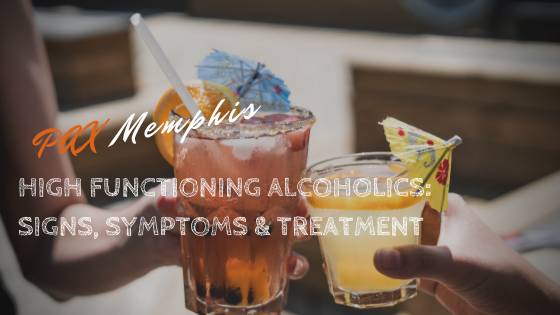Alcoholism is a disease characterized by the inability to control one’s drinking despite legal, social, and health repercussions. Often, people believe that alcoholics present themselves as sloppy, are unemployed, or have an array of legal and social issues. While this is possible, many alcoholics do not fit this description. In fact, there is a type of alcoholic often referred to as a “high functioning alcoholic”. These people are able to completely maintain their lives, despite a severe addiction to alcohol.
While high functioning alcoholics are able to hold jobs and maintain daily responsibilities, they still face the same risks as other alcoholics. High functioning alcoholics may only drink to curb cravings and avoid withdrawal. Additionally, some binge drink after work or on weekends. This allows them to remain in denial of their alcoholism. However, underneath the composure they maintain lurks a dangerous dependence on alcohol.
What is a High Functioning Alcoholic?
Despite popular belief, there are many problem drinkers who fit the criteria of a functioning alcoholic. Functional alcoholics include people who are dependent and tolerant of alcohol but are able to maintain schooling, careers, and relationships that appear healthy. While they are able to maintain their outward appearances, they have an addiction to alcohol. Unfortunately, many high functioning alcoholics do not receive treatment until they suffer health issues, major life issues, or an emotional bottom. This is due to their inability to realize that their drinking has become problematic – often because they have not experienced any repercussions.
Signs & Symptoms of High Functioning Alcoholics
Dr. Howard Moss, an NIAAA associate director, stated that nearly 20 percent of alcoholics are highly functional and well-educated. Due to outer-appearances, it may be difficult to identify a high-functioning alcoholic. Additionally, they often are in denial about their alcoholism or attempt to hide it.
However, families and loved ones that are close enough to high functioning alcoholics will notice the signs:
- Using alcohol to relax
- Drinking alcohol to boost one’s self-confidence
- Drinking in the morning
- Getting intoxicated while they are alone
- Binge drinking
- Having an array of excuses for their drinking
- Experiencing regular blackouts due to alcohol
- Difficulty controlling their alcohol intake once they start
In addition to these signs, many functional alcoholics will isolate themselves in order to hide their drinking. As a result, it becomes difficult for an individual’s friends and family to identify their alcoholism. However, at some point, their alcoholism will come to light. Whether through social, legal, or health issues – alcoholism is a progressive and destructive disease.
Do Functional Alcoholics “Hit a Bottom”?
Many people who suffer from alcoholism or have loved ones who suffer, have heard the term “hitting rock bottom”. In fact, many movies and TV shows portray a dramatized version of addicts experiencing rock bottom. Typically, these scenes show a person waking up in a hospital after a long night of drinking, or losing everything due to their addiction. Similarly, in real life, rock bottom is a term used to explain the point at which an alcoholic or drug addict realizes the extent of their problem.
However, an alcoholic’s rock bottom is unique to them. For some, they receive a DUI for drunk driving and realize that they are alcoholics. On the other hand, some individuals may go through extensive and severe consequences before they realize they need help. High functioning alcoholics may hit rock bottom over time, which typically prompts individuals to receive help for their alcoholism.
High functioning alcoholics may not frequently fail to meet responsibilities, but they may occasionally skip social gatherings or work events due to a hangover or the desire to drink alone.
Additionally, they may begin to display other symptoms of alcohol use disorder:
- Changes in mood or attitude
- Memory problems
- A decline in cognitive abilities
- Shakiness when they do not drink (a symptom of alcohol withdrawal)
- Insomnia or paranoia
- A decline in physical health
- Calling out of work or skipping social events more frequently
- Drinking during inappropriate occasions
Helping a High Functioning Alcoholic
Due to the nature of high functioning alcoholics, it may be difficult for loved ones to tell that they are suffering. Often times, these individuals will appear to be functioning normally in society, while they are simultaneously suffering from an addiction to alcohol. Consequently, it is important for loved ones to be knowledgeable about the signs of alcoholism and vigilant in their response. Performing a former intervention or utilizing interventional strategies are often vital in helping functional alcoholics. This allows the alcoholic to realize the severity of their drinking problem and the effects it has on their loved ones. As a result, functioning alcoholics may decide to receive proper medical treatment for their alcoholism.
Once an alcoholic has agreed to stop drinking, it is vital for their safety to enroll them in a treatment program that includes medical detox. Alcoholics are typically physically dependent on alcohol. Because of this, quitting cold-turkey would make them susceptible to life-threatening withdrawal symptoms like:
- Insomnia
- Shaking or tremors
- Rapid heart rate worsening any existing heart conditions
- Nausea causing malnutrition or dehydration
- Delirium Tremens
- Seizures
Fortunately, there are plenty of medical detoxes across the nation that can help alcoholics to safely recover. With the combination of medical detox, familial support, and continued therapy – many high functioning alcoholics can recover. Most importantly, early intervention is one of the best tools when combating the disease of alcoholism. Learning the signs and symptoms of alcoholism will allow family members the chance to save their loved one’s life. If you or a loved one suffer from high functioning alcoholism, recovery is possible and sustainable through alcohol treatment.
Medically Reviewed: September 25, 2019

All of the information on this page has been reviewed and verified by a certified addiction professional.










